THE DEVELOPMENT OF LANGUAGE AND COMMUNICATION : two components that make a difference in learning
How to promote the development of language from the first years of life?
Promoting good oral language and communication skills is perhaps the most important thing parents, caregivers and educators can do to prepare children to enter kindergarten. Just like any other skill, learning to speak requires frequent practice. For this reason, it is essential that families and other people who interact with children do everything possible to encourage oral language on a daily basis and from the first stage of life.
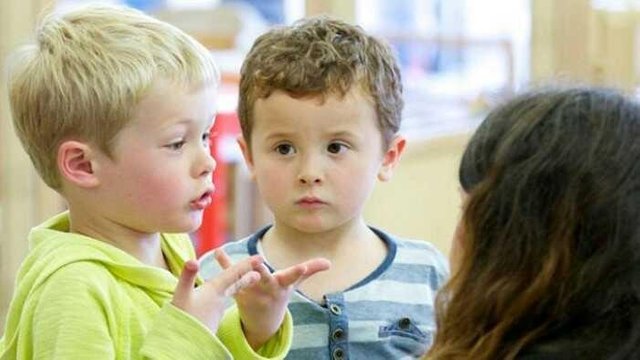
image source
At age three, a child with language skills that have developed at a normal pace should be comfortable responding verbally to common questions and should not communicate only with gestures. Since children learn oral language following the model of adults who are listening to them, it is essential to reinforce good speaking habits, giving an example with the use of expression, vocabulary and correct grammar.
How to do it?
1.Talk with children:
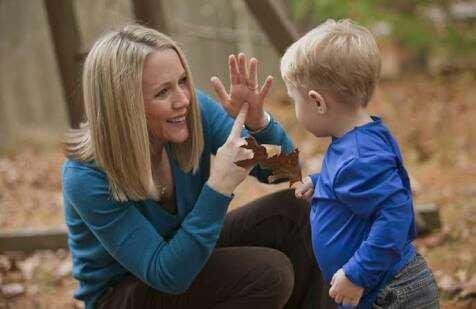
image source
whenever possible, adults should open conversations. It is suggested to develop "talking points", which are basically starting points to start the dialogue. These points can be written on some cards, so whenever you want to talk, you can ask the child to choose one of them.
2.Approach and listen:
when talking with children, it is important to approach. In this way, they are able to see the lips and facial expressions, in addition to clearly listening. Approaching is a way to ensure that children maintain interest in what you are saying. Be sure to send clear messages and respond to the comments they make to nourish the conversation.
3.Answer and deepen:
when a child tells you something, answer whenever possible. After this, try to lengthen the conversation. Give more context to the child's response, even when his comment seems simple.
For example, if you say something like "I like apples", you can say: "I like them too. What kind of apples do you like the most? "
4.Talking about actions:
activities such as cleaning, organizing toys or eating are excellent opportunities to develop language. Talk to the children about what they are doing and how they are doing it. These conversations are good for exposing children to general language and conversations, which helps them acquire a vocabulary that is necessary for their daily life.
5.Tell stories:
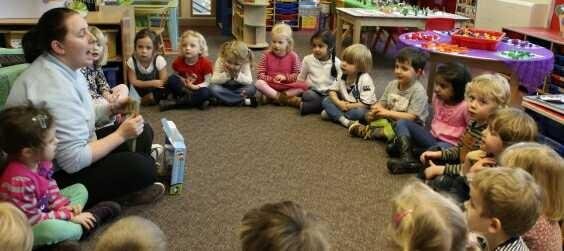
image source
tell stories from the past or things that will happen. Teachers can talk about what they will do in class and parents can talk about future plans. By telling stories, you can ask questions that motivate children to participate in the construction of new stories. They can be questions like: “what happens next" or "tell me what you did in school today".
6.Appropriate levels of vocabulary:
you have to have the right balance. Too many words is not good and very few either. There is no magic formula, but according to the abilities of the children you can define what kind of words can be used.
7.Objects to promote language:
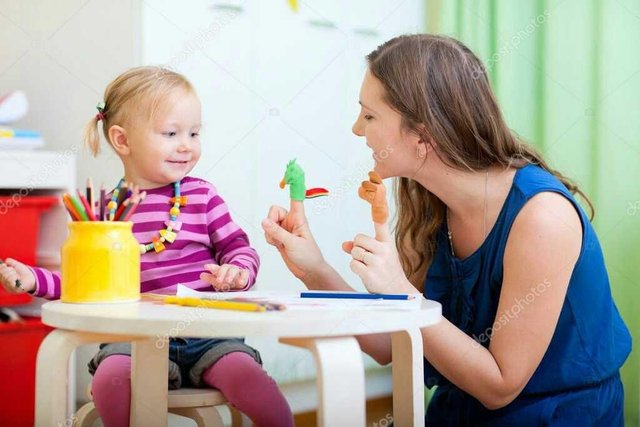
image source
puppets, old telephones, microphones, costumes; includes these and other elements that encourage the development of language in the spaces in which children find themselves. Particularly disguising them, motivates them to imitate vocabulary, facial expressions and body language. Therefore, costumes and other elements such as these are perfect for encouraging oral interactions.
In oral language, it is much more than just talking.
Listening skills can be improved over time and in that process the adult is key. They are the ones who should model a good listening, making sure to have the attention of the children, lowering their voices, speaking slowly and being very clear in what they are communicating.
With respect to vocabulary, the more words a child has, the more he can understand what he reads or hears. Children begin to hear and understand words long before they can verbalize. Then, exposure to a wide variety of words can help them understand what they mean.
With respect to phonological awareness , one can develop reading books, teaching rhymes, poems and songs. You can perform activities that help them develop sound skills, practicing the alphabet and talking about sounds.
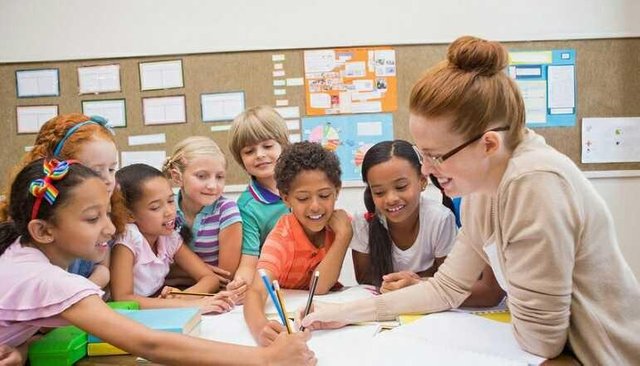
image source
Why is all this important?
Because, language impacts other areas of future development. It is essential not to leave aside the aforementioned actions, in order to guarantee the best possible development of the language; Doing so can be a way to ensure, to a large extent, the success of children in kindergarten and later in school.

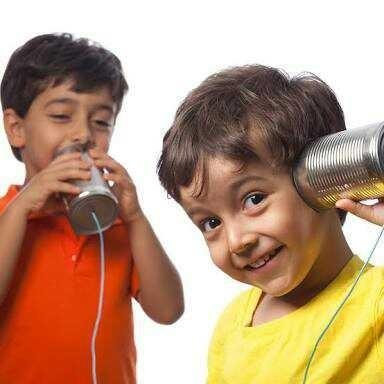
Congratulations! This post has been upvoted from the communal account, @minnowsupport, by stevendion from the Minnow Support Project. It's a witness project run by aggroed, ausbitbank, teamsteem, theprophet0, someguy123, neoxian, followbtcnews, and netuoso. The goal is to help Steemit grow by supporting Minnows. Please find us at the Peace, Abundance, and Liberty Network (PALnet) Discord Channel. It's a completely public and open space to all members of the Steemit community who voluntarily choose to be there.
If you would like to delegate to the Minnow Support Project you can do so by clicking on the following links: 50SP, 100SP, 250SP, 500SP, 1000SP, 5000SP.
Be sure to leave at least 50SP undelegated on your account.